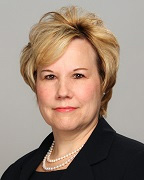
Working Together in Uncertain Times
“It was the best of times, it was the worst of times, it was the age of wisdom, it was the age of foolishness, it was the epoch of belief, it was the epoch of incredulity, it was the season of Light, it was the season of Darkness...”
I am reminded of these opening lines by Charles Dickens in A Tale of Two Cities. The past months have been unprecedented for most of us. It has been a roller coaster of emotions as we struggle to practice social distancing, to preserve some elements of “normalcy,” to adjust to new work and social flows, and to figure out how each of us from our corner of the world can contribute to reduce the physical, mental, economic, and societal impacts of this global pandemic. I think I have had all the feelings Dickens describes — sometimes within the span of a mere 24 hours.
What has fueled my hope, though, are the stories of partnership, innovation, and compassion — of people coming together from diverse backgrounds and experiences to find ways to fill needs and find solutions. There are just not adequate words to express our heartfelt gratitude to all the essential workers who are sacrificing so much in their lives to care for the lives of others. It has been gratifying to see so many sectors pull together during these challenging times.
The global standardization community is no exception. Many standards development organizations and their members are working in public and private collaboration to make a difference. ASTM International has created a webpage where our standards related to the pandemic can be accessed (astm.org/COVID-19). The U.S. Food and Drug Administration, the Canadian government, the World Health Organization, NATO, the Purdue Manufacturing Extension Partnership, the State of New York, and America Makes are just few of the organizations currently directing their stakeholders to ASTM International standards as a resource. Our standards are playing a big role in the response to COVID-19.
ASTM member organizations are stepping up too. We see manufacturers re-tooling their production lines to meet demands and needs for other products, a medical manufacturer making their 3D printing network available for free to the global medical community to speed design and production of medical components, and a university team designing disposable face shields that can be mass-produced quickly to address hospitals’ needs nationwide. There are ASTM members in government agencies working with industry and their global counterparts on accelerated processes for testing and therapeutics. And I am so inspired by an ASTM member who is sewing masks at home and taking them to businesses that need them. All reasons for great hope.
ASTM International is open for business, but we continue to follow the advice of the U.S. Centers for Disease Control and Prevention, the World Health Organization, and other government bodies. As such, we have canceled upcoming in-person standards development meetings and independent meetings through the end of May. However, ASTM’s standards development and revision process continues through e-balloting, virtual meetings, and collaboration areas. Almost every committee is having a combination of WebEx meetings for some task groups and subcommittees and the use of ballots to resolve negatives. (I know of at least one committee that even had a virtual happy hour!)
ASTM truly is about its people and their connections. Our online platforms, Compass and ASTM SpecBuilder, are running without interruption, providing access to all the ASTM standards and document-development tools you need. And our online training and proficiency testing programs also continue to be available for your use.
I want to thank you for your concern and for the care that has been expressed for our ASTM staff family. ASTM International, CCRL, and SEI staff are working remotely. I am pleased to say we are doing well and send our very best wishes for safety and good health to you and your families.
The certainty is that this uncertainty is going to be with us for a while. It will require our individual and collective resilience. One of the wellness programs offered to the ASTM staff spoke of how mindfulness can help us to be resilient and move forward in a positive way despite any negativity around us. The definition of mindfulness by James Baraz is particularly striking, and I leave you with it to think about: “Mindfulness is simply being aware of what is happening right now without wishing it were different; enjoying the pleasant without holding on when it changes (which it will); being with the unpleasant without fearing it will always be this way (which it won’t).”
Stay well.
Katharine Morgan
ASTM International President
 SN Home
SN Home Archive
Archive Advertisers
Advertisers Masthead
Masthead RateCard
RateCard Subscribe
Subscribe Email Editor
Email Editor